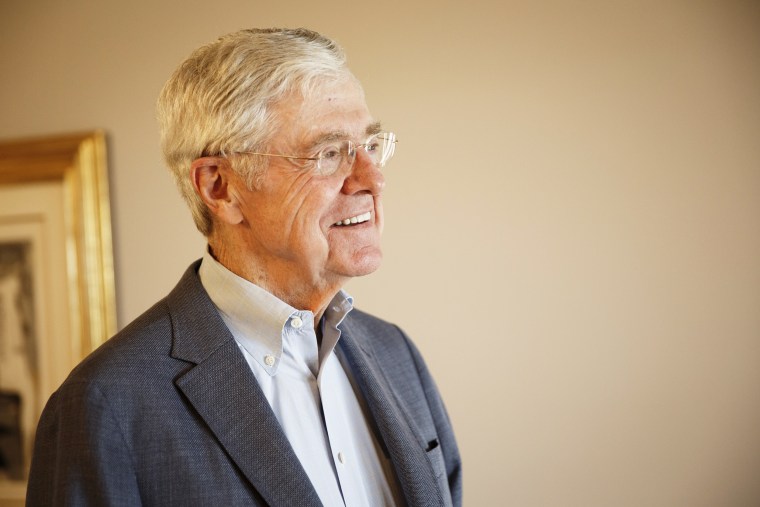WASHINGTON — The Supreme Court ruled Thursday that charities cannot be compelled to tell state regulators the names of their biggest donors, a requirement that some charitable organizations said would chill contributions.
The 6-3 ruling, which divided the justices along ideological lines, was a victory for conservative groups led by Americans for Prosperity, supported by the billionaire industrialist Charles Koch and his late brother, David. They said a disclosure requirement in California violated their First Amendment rights and exposed top donors to potential intimidation or attack.
Along with the Thomas More Law Center, a conservative Christian legal organization, the Koch group challenged a state law requiring charities to file annual reports and include a copy of an IRS document listing the names and addresses of their top contributors.

California said it gathered the information to help detect the use of charities in committing financial fraud. The filings are supposed to be kept confidential, but some of them ended up being posted online. Lawyers for the state said it tightened the rules for handling donor information, making it unlikely the data would be leaked in the future.
Chief Justice John Roberts wrote in Thursday's ruling that the law burdened donors' First Amendment rights and is not narrowly tailored to an important government interest.
"We do not doubt that California has an important interest in preventing wrongdoing by charitable organizations," Roberts wrote, adding, "Such offenses cause serious social harms."
"There is a dramatic mismatch, however, between the interest that the attorney general seeks to promote and the disclosure regime that he has implemented in service of that end," Roberts wrote, adding that there was little evidence the collection of donor information had advanced state investigation or enforcement efforts.
But in a dissent, Justice Sonia Sotomayor said the majority's decision "marks reporting and disclosure requirements with a bull’s-eye" going forward.
"Regulated entities who wish to avoid their obligations can do so by vaguely waving toward First Amendment 'privacy concerns,'" she wrote, adding. "Neither precedent nor common sense supports such a result."
When the Supreme Court confronted this same issue in 1958, it struck down an Alabama law requiring the NAACP to disclose the names of its members in the state. The court said then that the measure would expose members "to economic reprisal, loss of employment, threat of physical coercion, and other manifestations of public hostility."
In the current case, the two conservative groups attracted a wide range of supporters. The U.S. Chamber of Commerce and the National Taxpayers Union Foundation were among those filing friend-of-court briefs on their side — but so were the American Civil Liberties Union, the Electronic Frontier Foundation and the Committee on American-Islamic Relations.
Advocates of controls on the money spent in political campaigns urged the court not to use this case to tamper with the federal laws requiring political campaigns to disclose their contributors. The court has also ruled that supporters of state referendum votes have no right to keep their names secret.
In the past, the court said any concern about exposing political contributors is outweighed by the government's interest in enforcing campaign finance laws.
